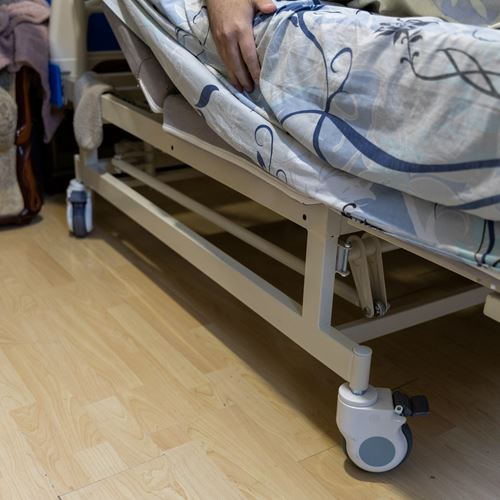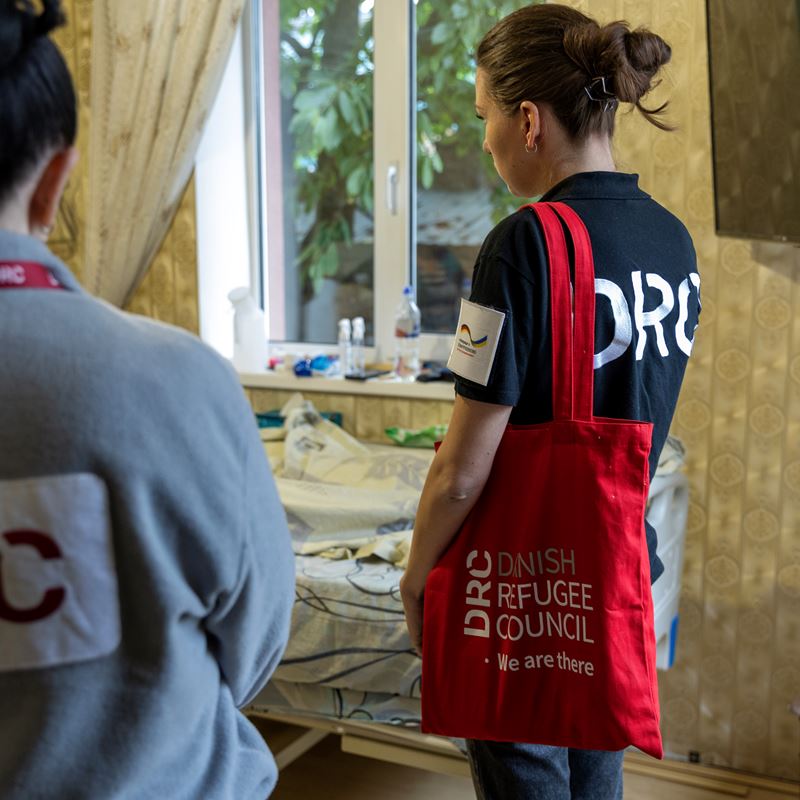
As we enter the courtyard of a private house in Dnipro, we are warmly greeted by two women: Lidiya and Mariia*, their smiles accompanied by heartfelt words of gratitude. A small red dog bounds out of the gate, joining the welcoming committee. Inside, we see a larger dog with striking blue eyes resting in a cage. “We evacuated them from Pokrovsk,” explains Lidiya. “My son Yevhen has a deep love for stray animals and actively tries to help them. Along with our own pets, he has taken in three more dogs, and now people come to us asking to foster strays.”
Upon entering the house, we find Yevhen lying on a medical bed in a ground-floor room. A pin stabilises his shoulder, while a blanket covers the rest of his body. At his feet, a sphynx cat rests, and another cat lounges beside him.
A life-altering incident
“It happened in February 2025,” Yevhen recalls, reflecting on the day that changed his life. In the Pokrovsk region of Donetsk Oblast, where the sounds of shelling were a daily occurrence, Yevhen, his mother, and grandmother were unable to leave Dnipro. Yevhen's father was missing, and the hope of finding him kept them anchored in their family home.
After one particularly violent round of shelling, the windows of their house were shattered. As Yevhen and his neighbour attempted to repair the damage, two rockets exploded nearby, killing Yevhen’s friend. Yevhen felt losing control of his body. "At that moment, everything went black. I just didn’t understand what was happening," he remembers. Yevhen had many shrapnel wounds, the lower part of his body was most affected. He was rushed to a hospital in Dobropillia and soon found himself on the operating table. After this surgery, Yevhen was transferred to different hospitals in Dnipro and Kryvyi Rih, where doctors fought tirelessly for his recovery. "Every day was a struggle," he says.
The need for support
Eventually, when doctors allowed him to return home, Yevhen chose his newly rented house in Dnipro. It was more comfortable, but Yevhen required a special medical bed. "It was excruciating to lie on a normal bed or sofa. After three days of such sleep, I thought I wouldn’t be able to endure it," he recalls, pain evident in his voice.
Help arrived from the Danish Refugee Council (DRC). In partnership with Humanity & Inclusion, the organisation provided Yevhen with assistance funded by the German Federal Foreign Office.
"We provided funding for delivery, assembly, and the purchase of a special bed for Yevhen," Maria, a protection assistant at DRC, explains. "This bed makes caring for him easier and supports his rehabilitation."
When discussing this support, smile doesn’t leave Yevhen’s face. "Now I can sleep without pain; this is incredibly important for my recovery," he says.

